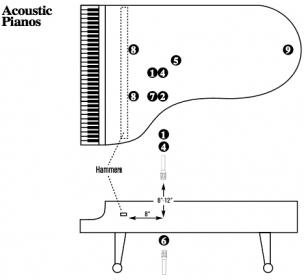Am I in the wrong thread? First you assured me that talking about vinyl was on topic. Now, "in this particular thread" you feel it is appropriate to limit the music discussion to classical. I was almost certain the thread was about hi-res digital formats and had no limitations around classical music. But hey, what do I know? I just started the thread...
Tim
Tim,
Am I writing in a strange dialect?
As far as I know we are free to choose the type of music in WTB discussions. I have said before that complex classic music or chamber music is much more challenging than simple jazz music with a few performers or pop vocal music that I do not know how it would sound as I never was in the studio. Others may think differently....







